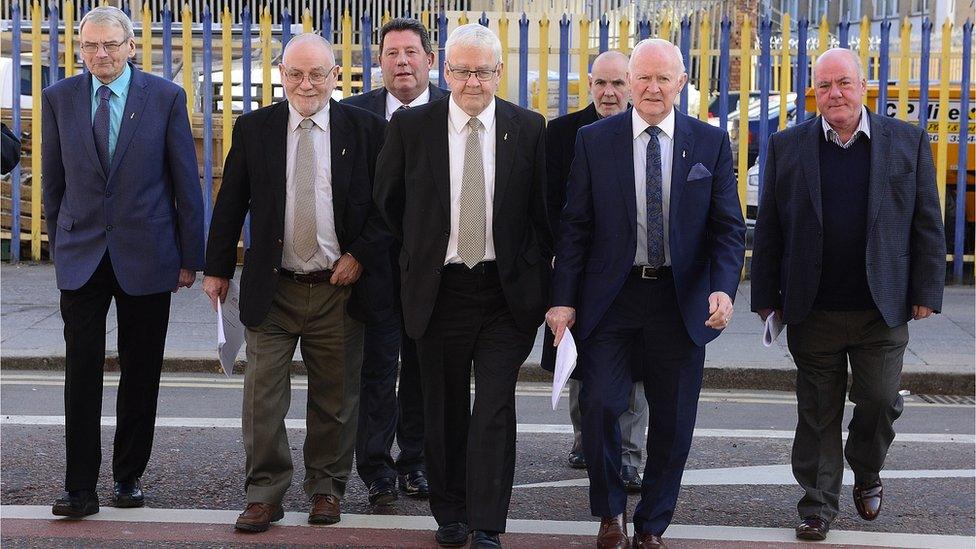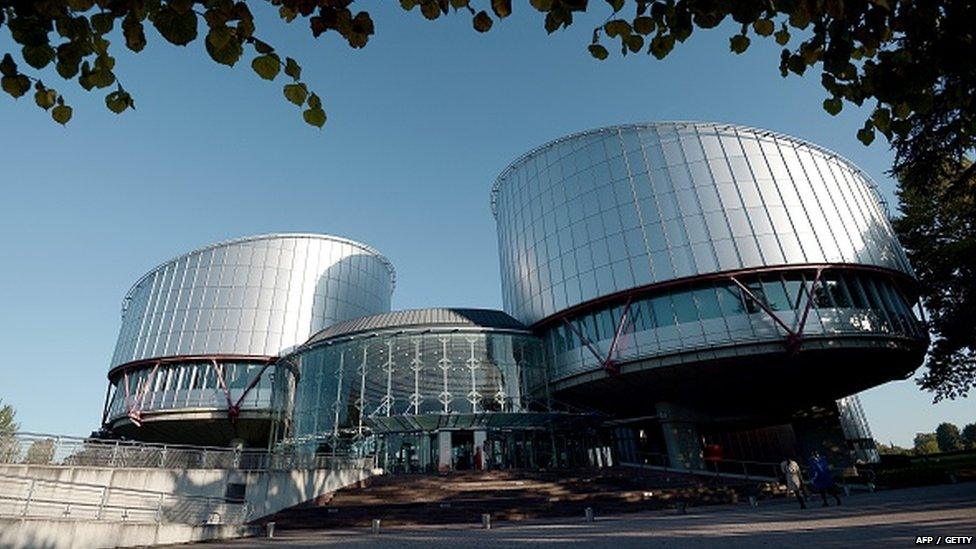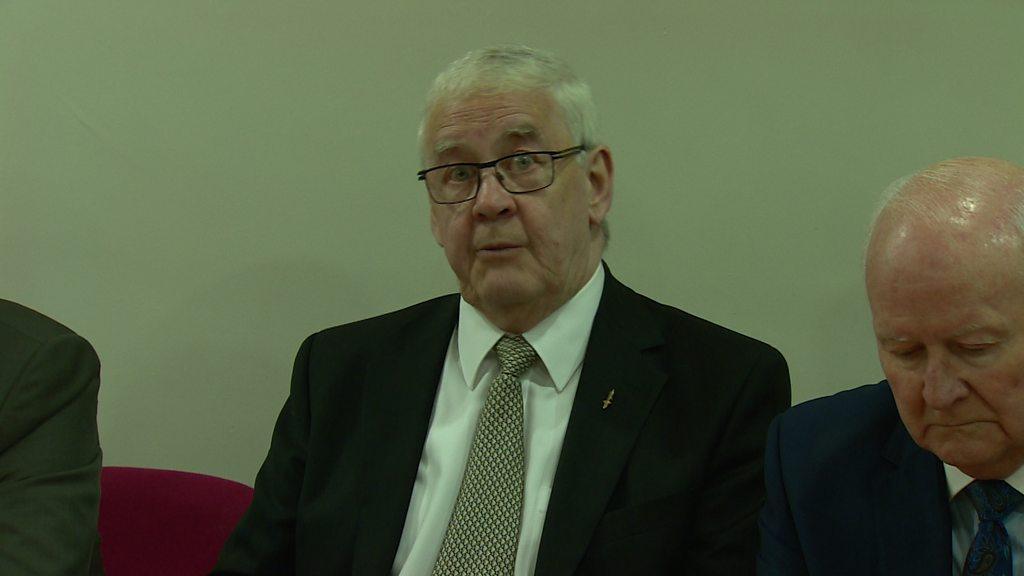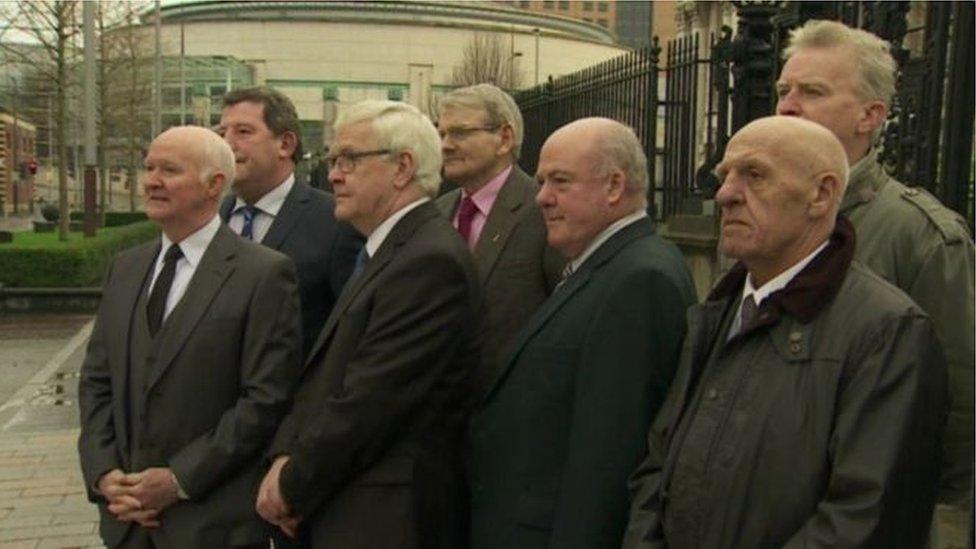Irish government to appeal Hooded Men decision
- Published

The so-called Hooded Men have claimed they were tortured by the Army in 1971
The Irish government will appeal a European court decision that found the UK did not torture a group known as the Hooded Men during the Troubles.
The 14 men have said they were subjected to torture by the Army in 1971.
The Dublin government will request a referral to the Grand Chamber of the European Court of Human Rights (ECHR).
Earlier this year, the court dismissed Ireland's request to find the men suffered torture.
It said there was "no justification" for revising an original judgment of 1978, which held that while the men suffered inhumane and degrading treatment, they were not tortured.
The ECHR judges rejected the Irish case by a majority of six to one.

The European Court of Human Rights in Strasbourg
One of the Hooded Men, Kevin Hannaway, said the decision to appeal was a mammoth step for survivors of torture around the world:
"We all intend on fighting this case to the very end on behalf of ourselves and those who have passed away since the treatment we underwent."
'International significance'
Darragh Mackin, solicitor for the Hooded Men, said they warmly welcomed the Irish government's decision to appeal the judgement:
"The international significance of this case is duly reflected by the fact that this case will now be referred to the highest court in Europe.
"The grounds were self-evident. We now look forward to an expeditious hearing in the Grand Chamber."
The men claim they were subjected to torture sanctioned by the state.
They say they were forced to listen to constant loud static noise; deprived of sleep, food and water; forced to stand in a stress position and beaten if they fell.
Helicopters
The men have also said they were hooded and thrown to the ground from helicopters - despite being at near ground level, they had been told they were hundreds of feet in the air.
The five techniques the men were subjected to were later banned by the prime minister at the time, Edward Heath.
In March, the ECHR found: "The Government of Ireland had not demonstrated the existence of facts that were unknown to the court at the time or which would have had a decisive influence on the original judgment.
"There was therefore no justification to revise the judgment."
- Published20 March 2018

- Published17 February 2017

- Published15 February 2017
